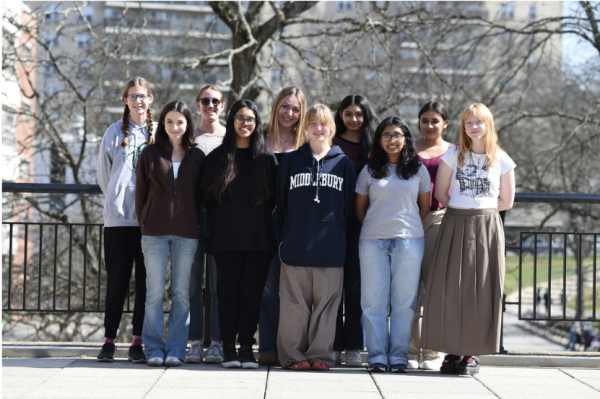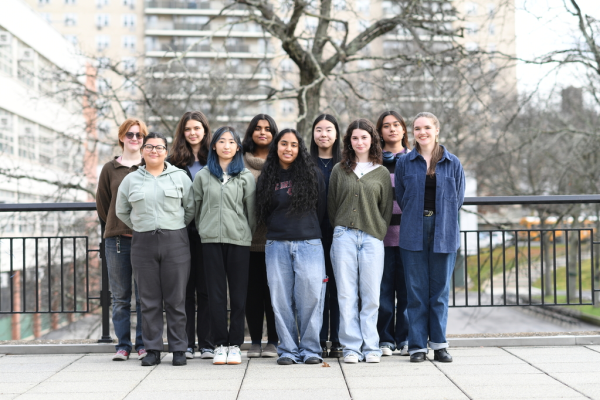Advice to Juniors About College
Mina Yamanaka ’20 provides input on how she plans to spend the summer after her junior year.
Tests. Essays. Recommendation letters. The start of spring marks the acceleration of all those things and more. For juniors, the college process is among us, whether we like it or not. Though it seems daunting, the application process does not have to be. The early actions you take in junior year are intended to help you effectively embark on the journey known as the application process.
Though many juniors do not consider college applications officially commenced until the fall of senior year, guidance counselors began scheduling private college meetings as early as February in a student’s junior year. Each student is invited to attend two meetings. A typical college meeting consists of a one-on-one discussion between a student and their guidance counselor. “We collect relevant information such as potential college major, must-haves in a college, the essay, course selection for senior year, standardized testing and who students should approach for recs and raves,” said Mr. Nasser, the school’s Assistant Principal of Pupil Personnel Services. “The second meeting is open to parents and guardians, and a list of colleges is further discussed. More time is spent on the college essay and finances are elaborated on,” added Mr. Nasser.
The first task is completing the questionnaires waiting on your Naviance account. There is a guidance counselor questionnaire for you to fill out and an optional parent questionnaire. These surveys guide your counselor in writing the best letter of recommendation for you.
“At first, the questionnaire looked like a ton of taxing questions, but upon evaluation, they helped me better understand who I am as a student,” said Andrew Zheng ’20. Guidance counselor questionnaires had a suggested deadline of April 1st, so if you haven’t logged on to Naviance yet, now is the time to start!

Andrew Zheng ’20 offers reflection on how the junior surveys have benefited him.
The next stage is securing letters of recommendation (recs) and raves from your teachers. When it comes to recs, students should ask teachers who they feel know them best and revere them highly, both as a student and as a person. It is advised to ask for a rec from a teacher in person, because it is a huge commitment for both parties. On the other hand, raves are shorter and more informal than recs, but are equally as valuable. Raves are essentially brief blurbs that a teacher writes about a student in order to help their guidance counselor write a more fulfilling rec.
Perhaps the most stressful aspect of junior year for many students is standardized testing. The two major exams that colleges refer to are the SAT and the ACT. They are quite different from each other, and certain colleges may only accept a certain exam. This means students should carefully consider which one to take. Though everyone takes the SAT or ACT at different times, students are recommended to have all their testing complete before applying to college in the fall.
Before taking an SAT or ACT, it is advised to take practice tests to simulate the actual exam. Though some may decide it is better to attend test prep, self-studying can be just as effective when done with discipline. “I don’t think that prep is necessary. It can be for some people, but things that I found a lot more helpful were free College Board practice tests, and Khan Academy, which helped me tremendously,” said Gazi Fuad ’20, who managed to score a 1510 on the SAT. There is an abundance of incredibly useful resources online and at school to help you prepare for the SAT/ACT. For more information, students should visit the College Board and/or the ACT site.
Students may also opt to take SAT II subject exams, which hone in on a variety of topics, ranging from Mandarin to Physics. “SAT II exams should be discussed with teachers and counselors. If you are going to take them, taking two is prudent. When students are in an AP class, they should consider taking the corresponding subject test when applicable,” said Ms. McHugh, the Co-Director of the College Office.
For those who want to learn more about the schools they are applying to, college nights and college fairs are excellent ways to do so. Fortunately, there are frequent group trips taken to colleges and universities in order to learn more about them. However, if a school you’re interested in is far away, we also hold college nights during the year. They are a chance for students to hear from representatives from several schools.
College fairs operate in a similar way. Students are able to reach out to alumni, ask questions, and demonstrate an interest in those schools. The Bronx Science Annual College Fair was held on May 1st, 2019.
As your junior year comes to a close, it is important to consider how you want to spend your summer. “I suggest students have fun and relax! Summer may be a good time to get started on the Common Application, draft your college essay, and see which colleges require supplemental essays. It’s also a good time to explore interests.” said Mr. Nasser.
Making use of this time before your senior year is especially advantageous because it demonstrates that you have dedicated your time and effort toward projects or activities that you are passionate about. Over the summer you can volunteer, intern for companies, take pre-college courses, or find a job. The possibilities are endless.
“I suggest students have fun and relax! Summer may be a good time to get started on the Common Application, draft your college essay, and see which colleges require supplemental essays. It’s also a good time to explore interests.” said Mr. Nasser.
“I’m going to have a busy summer, but I don’t think it’ll feel busy because I chose to do things that I love and know I will enjoy doing,” said Mina Yamanaka ’20. Although filling your summer with a ton of internships and volunteer opportunities may appear nice for your application, you should make sure you don’t spread yourself too thin. Instead, focus on channeling your attention toward a few pursuits that genuinely resonate with you. Remember, when it comes to college applications, quality trumps quantity.
Pamela Li is a Copy Editor for ‘The Science Survey’ and a Senior Staff Reporter for ‘The Observatory.’ She finds journalistic writing appealing...
Kaitlyn Romanger is an Editor-in-Chief for ‘The Science Survey’ as well as a Groups Reporter for ‘The Observatory’. She interviews students, coaches,...











